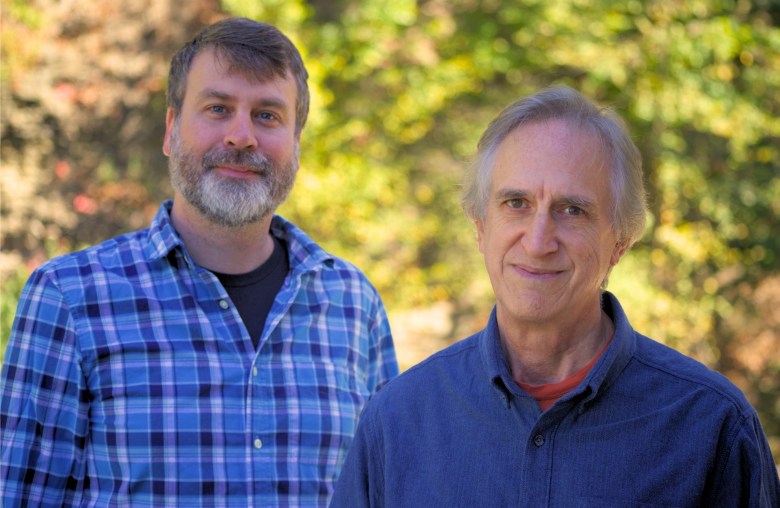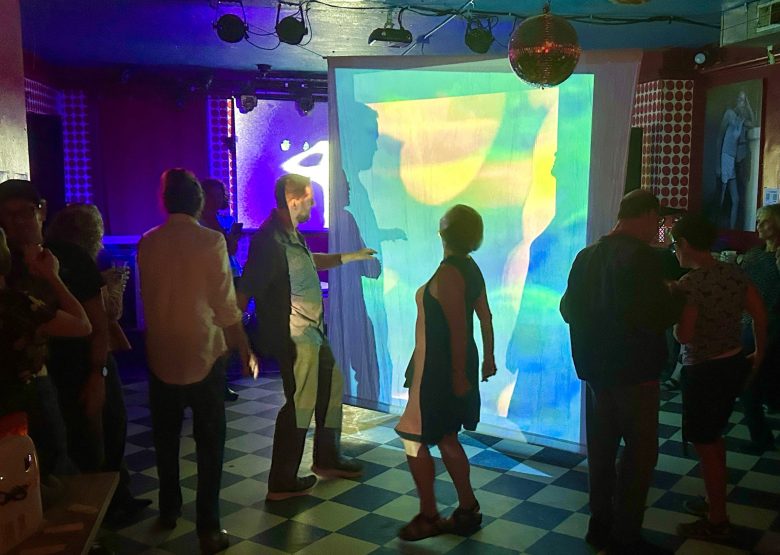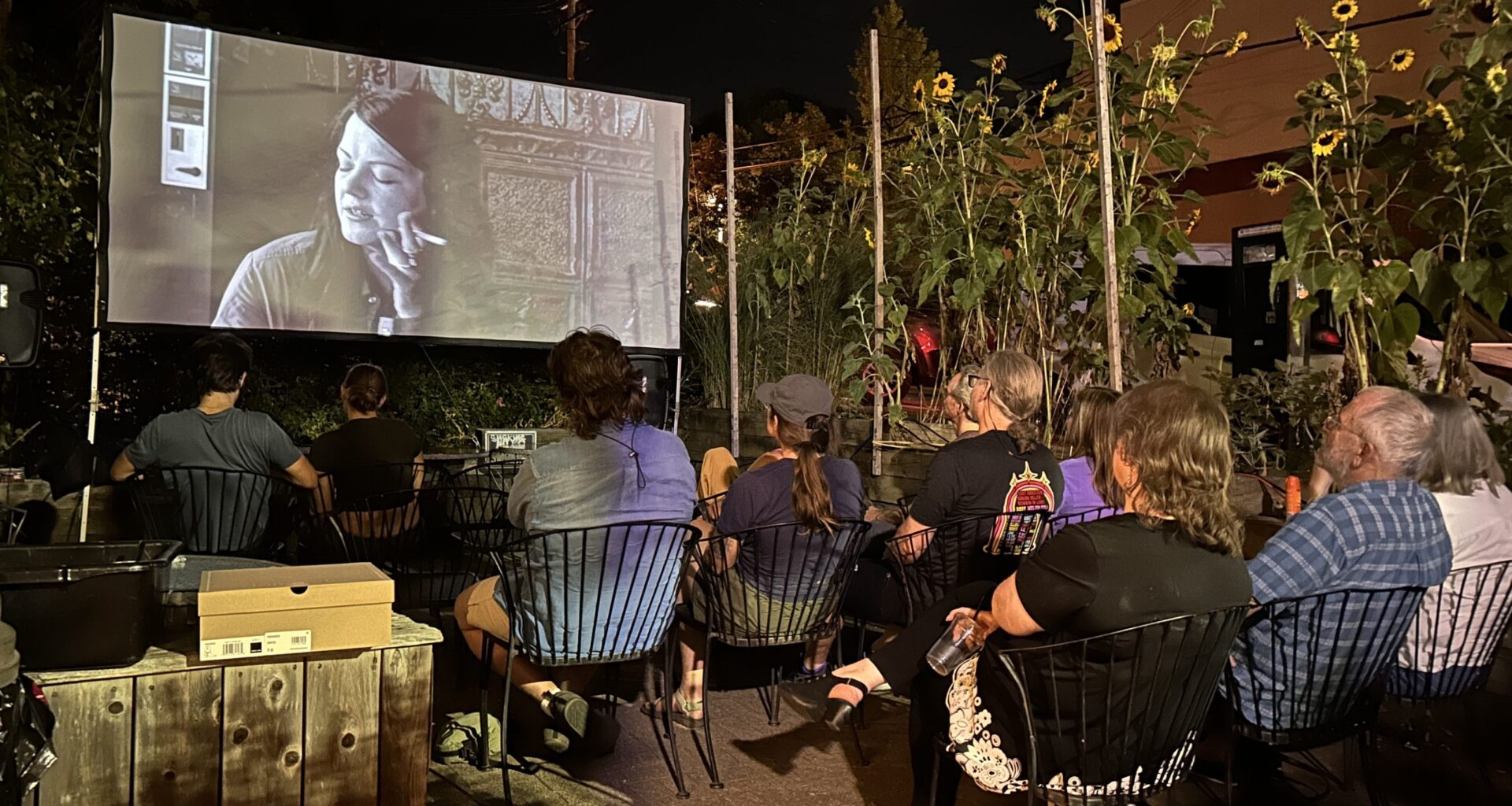Though many may not know it, Pittsburgh has long been an incubator for independent film artists. Just to name a few, experimental filmmaker Peggy Ahwesh, documentarian Tony Buba and special effects makeup guru Tom Savini all hail from the Steel City.
“Pittsburgh has a long history with independent film,” says Brady Lewis, cofounder of Keylight Film, a new arts nonprofit. “Along with New York and San Francisco, Pittsburgh has really been the top place, especially for independent filmmaking.”
That spirit is something Lewis and his colleague Chris Smalley hope to carry forward with Keylight Film, which will share the history and techniques of indie filmmaking with the public through film screenings, educational seminars and more.
What about Pittsburgh made it such a hub for indie filmmaking? A major piece of that puzzle was Pittsburgh Filmmakers, one of the largest media arts nonprofits in the country, which closed its doors in 2019. Filmmakers provided equipment and education for film students from 10 universities in the Western Pennsylvania area. Lewis and Smalley spent a combined 40 years working with the organization, with Lewis acting as director of education for 30 years.
“I was running a school, and I was also teaching every semester in the classroom,” says Lewis.
Smalley was the director of operations — he managed the equipment office there and also taught classes.

 Keylight Film codirectors and founders Chris Smalley, left, and Brady Lewis, right. Photo courtesy of Chris Smalley.
Keylight Film codirectors and founders Chris Smalley, left, and Brady Lewis, right. Photo courtesy of Chris Smalley.
Pittsburgh Filmmakers’ closure ripped a gaping hole in Pittsburgh’s film community, made worse when the Covid-19 pandemic struck just a few months later. It left many artists floating adrift, lacking the resources and community to create and sell their work.
Eager to help the community rebuild, Lewis and Smalley began discussing what would become Keylight Films shortly after Filmmakers’ dissolution. There was just one thing they were missing: a home.
“The big thing that was stopping us was we didn’t have a home base, a location that we could work out of,” says Lewis. “But then we started to rethink things, that maybe we could be a little more nomadic and find locations that would host this.”
On Aug. 23, Keylight hosted its first event: a screening of Jim Jarmusch’s 2003 indie classic “Coffee & Cigarettes” at Squirrel Hill’s 61C Cafe. But Keylight isn’t just screening films. On Sept. 27, they hosted their inaugural workshop on the ethics and legality of filming during protests.
Smalley and Lewis say they hope to increase the pace of events to one screening and one workshop per month, with several already planned. On Oct. 29, Keylight will take over Kingfly Spirits in the Strip District for a screening of David Cronenberg’s sci-fi classic “The Fly.”

 Keylight’s soft launch party at Brillobox in September. Photo courtesy of Keylight Film.
Keylight’s soft launch party at Brillobox in September. Photo courtesy of Keylight Film.
They’ll also welcome their first visiting artist when Milwaukee-based artist and film professor Jesse McLean screens her experimental documentary “Light Needs,” a film about the complex relationships people have with their houseplants. Aptly, that screening will be at Phipps Conservatory on Nov. 13.
While they’re still finding their footing, Keylight aims to help lead a resurgence in Pittsburgh’s indie film community. Alongside other nonprofits such as Pittsburgh Sound + Image, they are doing their best to fill the void left behind by Pittsburgh Filmmakers and re-create a vibrant community of visual creatives. Upcoming workshops include “Introduction to Shooting Film” happening Nov. 1, Nov. 8 and Dec. 6 at Kingfly Spirits and “The Flickering Truth: An Imprecise Survey of Avant-Garde Film” on Mondays in January at the Harris Theater, Downtown.
“We think that a number of smaller efforts are needed to kind of unite the people that are really film lovers, filmmakers and film workers,” says Lewis.
“Just because the entity of Pittsburgh Filmmakers closed doesn’t mean that the spirit of it had to close,” says Smalley. “We’re trying to bring the sense of community back to Pittsburgh film.”
Learn more about Keylight on the organization’s website or social media.

